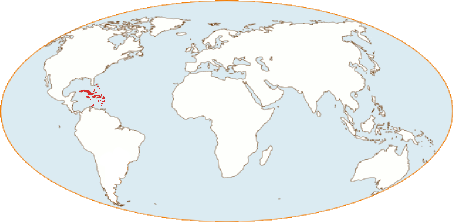Your search results [16 articles]
Mabi, a sweet potato beer of the Carib and Guyanas Amerindians.
The Mabi is a very old beer that the Amerindians of the Caribbean and Guianas drank long before the arrival of the European settlers around 1500.
Its name derives from mapi/nap'i which means sweet potato in the Amerindian languages of the Caribbean and Guianas. The term is generic: mapi/napi = Potato in general (sweet or not) or all kinds of potatoes. The Amerindians, in the richness of their languages, have a name for each kind or variety of potato, taking into account the multiple uses they have of it.
The sweet potato has a central place, alongside the other starchy tubers domesticated by the Amerindians (maniocs, yams, potatoes), in their culinary and pharmaceutical repertoire which includes several kinds of beverages, fermented or not. These plants were domesticated more than 4000 years ago. A fire-fallow agriculture allowed them to plant and uproot the precious sources of starch.
The beers of the type mabi have inherited their name from the Amerindian word for sweet potato in the ancient Caribbean and Guyana cultural area. If the domestication of the sweet potato is ancient, it would be unwise to assume that sweet potato beers are also ancient. There is no doubt that the Amerindians were brewing this type of beer several centuries before the arrival of the Europeans, if we consider the diversity of their brewing methods described by the first settlers.
The settlement of these areas dates back to 2500 BC (Surinam), but archaeological research provides almost no information on the material life of the Amerindians. Only relatively recent funerary jars show forms similar to the fermentation jars of cassava or sweet potato beers.
We first describe how mabi was and is still brewed and consumed in Native American cultures. This article tries to understand the specific place and role of this kind of beer among other fermented beverages: cassava beers, yam beers, banana wine and other fruits, cane sugar wine.
We then look at how Native American beers of the type "Mabi" were adopted by the Europeans who frequented the Caribbean islands and the Guyanese coasts in the 16th century. Certain brewing processes were copied by them and then transformed according to their needs and the cultural habits of their homelands.This is the period of the first contacts and a relatively peaceful coexistence, apart from the massacres perpetrated by the Spaniards in Cuba and Haïti, and the epidemics brought by the Europeans. The settlers had great difficulty adapting to the country (its climate, agriculture, the latent war between European powers). Their small communities need the Amerindians to survive, to learn to farm and to hunt. The mabi-beer is welcome and adopted without any ulterior motive.
The following century changed the situation. The island Indian territories of the Caribbean and the Greater and Lesser Antilles were no longer to be shared with their inhabitants but to be conquered. The settlers continue to eat and drink according to local customs, but the fermented beverages are transformed and differentiated. The mabi does not escape these evolutions.
From the 18th century, the mabi is almost exclusively reserved for blacks, poor Creoles and ruined "little whites" from the rural areas. A social cleavage is operating between the landowners and the poorest. The mabi-beer soon became a marginal beverage in the following centuries, marking the downgraded and the poorest of the poor.
Nowadays, the name has survived, especially in the Islands of the former British colonies and some Central American countries. But it refers to an exciting beverage made from bark and plants called "wood-maby". The memory of its Amerindian origin has faded.
The history of mabi is exemplary of the fermented beverages highly valued in Amerindian cultures, adopted unreservedly by the first Europeans, then gradually downgraded by the brandies imported from Europe in the holds of ships before they could be distilled on the spot (rum and tafia) thanks to the system of colonial sugar cane plantations.



